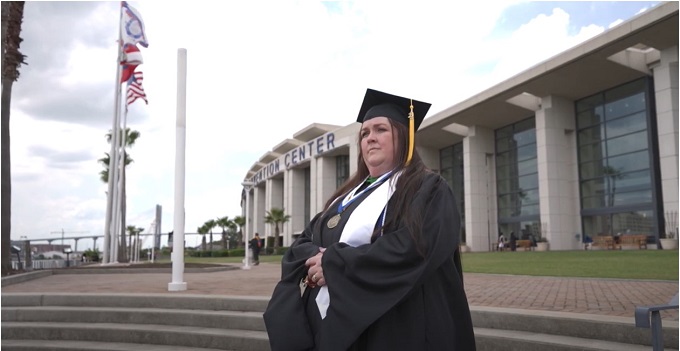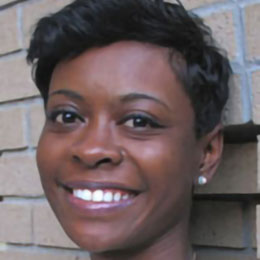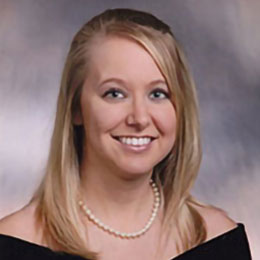Clinical Mental Health Counseling

Request Information
Master of Arts in Clinical Mental Health Counseling

Learn how to become a compassionate professional counselor with South University’s Master of Arts in Clinical Mental Health Counseling. As part of the master’s degree in counseling, the program offers comprehensive studies of theories and principles, dynamic applications in the field, training in effective assessment and treatment practices, a thorough understanding of the significance of research in the field and competence in ethical, legal, and professional standards.
The Master of Arts in Clinical Mental Health Counseling is designed to prepare graduates to sit for licensure in their state and the opportunity to become certified as a National Certified Counselor by the National Board for Certified Counselors*.
* It is up to each student to review the national and state licensure requirements for licensure, as well as the eligibility criteria to sit for licensure exams. South University cannot guarantee each graduate will pass the required licensure examinations. Outside agencies control the requirements for taking and passing certification/licensing exams and are subject to change without notice to South University.
South University does not promise or guarantee licensure, employment, or salary amounts.
Council for Accreditation of Counseling and Related Educational Programs
The Master of Arts (MA), Clinical Mental Health Counseling degree program at South University is accredited by the Council for Accreditation of Counseling and Related Educational Programs (CACREP), (Council for Accreditation of Counseling and Related Educational Programs, 1001 North Fairfax Street, Suite 510, Alexandria, VA 22314, phone (703) 535-5990.)
Admission Requirements
Procedure for Admission to the Master of Arts in Clinical Mental Health Counseling Program
Admissions criteria for the Master of Arts in Clinical Mental Health Counseling program are consistent with those required in other master's degree level programs at South University. As the admissions process also takes into consideration the characteristics deemed essential to becoming a clinical mental health counselor, material is also required which will enable a determination to be made of the applicant's personal integrity, maturity, interpersonal skills, and ability to communicate effectively. The criteria used in determining admission to the graduate program include:
- Completion of a bachelor's degree from an accredited institution.
- A grade point average of at least 2.3 (on an Admissions scale of 4.0) for the last 60 semester hours/90 quarter hours of coursework (including relevant graduate work), or, a bachelor's degree with an overall CGPA of 2.3, or, an earned graduate degree from an accredited institution with a CGPA of 3.0 or higher.
- A minimum score on a South University preapproved English language proficiency test is required for all applicants whose "first" language is not English as specified in the English Language Proficiency Policy.
- Interview with the Clinical Mental Health Counseling department chair/program director or designated faculty member.
- Approval of the campus program admissions committee.
- Completion of an application for admission.
- Submission of a personal/professional statement addressing the applicant's interest in counseling, professional goals, along with a self-appraisal of academic and professional qualifications.
- Submission (within 5 weeks of class start dates) of official transcripts from all postsecondary institutions attended (refer to Conditional Acceptance).
- Current résumé (or career summary).
- Background Check
All required admissions documentation and criteria will be reviewed and evaluated. Applicants will be notified regarding acceptance. Applicants should review the published general graduate requirements listed in the South University catalog. Students who are citizens of countries other than the United States should also refer to the section in the South University catalog entitled International Student Admissions Policy.
For additional admissions information please see the admissions section here.
Course Requirements
Curriculum for Columbia; Richmond; Savannah and Virginia Beach campuses only
Curriculum for Columbia; Richmond; Savannah and Virginia Beach campuses only
Mission, Goals & Outcomes
Offered at Columbia, Richmond, Savannah, and Virginia Beach.
Program Overview
The Master of Arts program in Clinical Mental Health Counseling at South University is intended to train professional counselors for evidence-based practice to meet the needs of a diverse population. This program highlights advanced theories, principles, and evidence-based practice within the counseling field. Students cultivate necessary skills for effective assessment and treatment, but also attain competence in navigating ethical, legal, and professional nuances.
The primary goals of the program are as follows:
- Equip graduates with the clinical skills and knowledge for contemporary clinical mental health counseling assessment and treatment in a multicultural society.
- Develop graduates to be critical thinkers who ground their counseling practice in theory and research related to a variety of clinical issues, populations, settings, and modalities.
- Prepare graduates for the integration of technology in contemporary counseling practice and critical/analytical thinking regarding concepts and applications in the field.
- Empower graduates to embody a strong professional counseling identity and commitment to ethical practice.
The program is designed to provide an opportunity for its graduates to achieve initial eligibility criteria to become licensed in their state and certified as a National Certified Counselor (NCC) by the National Board for Certified Counselors (NBCC). The length of the Clinical Mental Health Counseling program varies in accord with the licensing requirements of the states in which the program is offered. As a result, the program may not meet the licensing requirements of all states. The student should contact the licensing board in the state in which they anticipate seeking licensure to determine the appropriate program.
Program Student Learning Outcomes
Graduates will be able to:
- Professional Identity and Ethics: Apply aspects of professional functioning to include ethical standards, legal implications, advocacy and social justice, counselor roles, and professional credentialing.
- Social and Cultural Diversity: Demonstrate the ability to apply multicultural research and core theory to issues and relationships in the context of culturally competent counseling.
- Human Growth and Development Through the Lifespan: Apply research and core theory to the needs of diverse individuals across the lifespan, to include atypical personality and neurological development, addictive disorders, family and social relationships, and crisis response.
- Lifestyle and Career Development: Demonstrate implementation of research and core theory related to the processes of decision-making in career development and planning in the context of the psychology of work.
- Counseling and Helping Relationship: Apply the major theories of change, consultation practices, diagnostic impressions, and evidence-based interventions to a diverse clientele for the delivery of effective and ethical treatment.
- Group Dynamics and Group Work: Apply culturally appropriate group skills, techniques, and theory-based interventions in the context of group counseling dynamics while exploring effective facilitation styles.
- Assessment and Appraisal: Analyze historical and current testing and assessment methods for implementing ethical and accurate appraisal of diverse clients by individual or group methods.
- Research and Program Evaluation: Apply needs assessment, program evaluation, and research methods to ethical and effective practice and to add to the body of literature in the counseling profession.
- CMHC Specialization: Plan, implement, and evaluate evidence-based programs and counseling approaches that are designed to treat psychopathology and promote optimal mental health.
Core Faculty
Columbia Campus Core Faculty

Katherine H. DeWitt, PhD
Program Director, Clinical Mental Health Counseling
Dr. Katherine DeWitt is an Associate Professor and the Program Director for Clinical Mental Health Counseling at South University in Columbia, South Carolina. Spending most of her professional life working in higher education as an academic and career counselor, Dr. DeWitt has worked closely with at-risk populations developing programs and resources to help first generation, under represented, and low income- college students persist to graduation and, for many of her students, on to graduate programs. Dr. DeWitt’s clinical experiences have been working with adolescents in the juvenile justice system, as a case manager for teen dug court, and leading parent/family psychoeducational groups as part of a behavior intervention program for Richland County District II schools in Columbia, SC. Dr. DeWitt’s research in Social Media engagement stemmed from her observation of the increasing integration of social media platforms in every aspect of daily lives, from the digital documentation of daily activities to becoming the primary sources of global news and information. In helping professions where the relationship between the clinician and the client is the foundation of service and care, how the clinician is perceived digitally is as important as how they are received in person. Dr. DeWitt’s research is expanding from examining social media engagement of counselors in training to practicing clinicians and supervisors.

Lanita Jefferson, PhD, LPC, LPCS
Full-time Faculty, Clinical Mental Health Counseling
Dr. Lanita Jefferson, Ph.D., LPC, LPCS is an assistant professor for South University Columbia SC campus. Dr. Jefferson also co-owns a mental health private practice in downtown Columbia SC. Dr Jefferson holds a Doctorate in Counselor Education and Supervision from the University of South Carolina, a Masters in Rehabilitation Counseling from USC School of Medicine. Dr. Jefferson specializes in working with persons that have trauma, depression, and anxiety. Dr. Jefferson also specializes in clinical supervision to enhance the professional development in counselors in training. Her research interest includes implementing the use of hip hop in clinical counseling and single case research in counseling.

David Leach, PhD, LPC, CRC
Clinical Coordinator, Clinical Mental Health Counseling
Dr. Leach is an Associate Professor and Clinical Coordinator for the Clinical Mental Health Counseling program at South University in Columbia, South Carolina. Dr. Leach has a clinical background in Rehabilitation Counseling having worked for South Carolina Vocational Rehabilitation Services with individual with profound hearing loss or deafness. Dr. Leach has also worked in programs sponsored by Mental Health America like Bridges Club House, a day program for individuals with mental health issues providing community integration services in the form of various groups in an effort to facilitate understanding of coping skills, independent living skills, and interpersonal skills. Dr. Leach has spent the last several years working with counseling students in the field mastering their clinical skills and preparing them for their futures as professional counselors. Dr. Leach has research interests in Community integration services for individuals with disabilities and persistent mental health issues and vicarious trauma for helping professionals.

Dan Lawther, PhD
Full-time Faculty, Clinical Mental Health Counseling Program
Dr. Lawther’s background and experience are diverse. His BA degree is in History and English from the University of Indianapolis, he holds a MA in General Experimental Psychology from Indiana State University, and a PhD in Counselor Education from the University of South Carolina.
He has variously worked as the Director of Housing at Rose-Hulman Institute of Technology, Director of Cottage Life for the Midlands Center (SCDMR), the Director of the Charleston Evaluation Center (SCDJJ), Psychologist III for the Intensive Behavior Modification Program (SCDJJ), Assistant Coordinator for the Intensive Care Units (SCDJJ), Director of Staff Development (SCDJJ), and Training Director for First Corrections Corporation. He has previous teaching experience at Limestone College and Webster University before beginning employment with South University. Dr. Lawther is coauthor of “Institutional Programs” in L. Villeponteau and D. Kirkpatrick (Eds) The Correctional Learning System.
Dr. Lawther’s major area of interest has been developing programs for the oppositional and conduct disturbed adolescent. To that end, he has presented programs for the Southern States Correctional Association and consulted with various program entities in Arizona, Alabama, Georgia, and the US Virgin Islands, St. Croix.
Career Outlook
These are some of the career options* you can explore when you have earned your degree:
- Mental Health Counselor
*South University does not promise or guarantee licensure, employment, or salary amounts.
The South University, West Palm Beach (WPB) campus relinquished its Clinical Mental Health Counseling (CMHC) programmatic accreditation with the Council for Accreditation of Counseling and Related Education Programs (CACREP) on March 31, 2023. The program submitted the CACREP accreditation application for program consideration in December 2023. South University, West Palm Beach is now in an “in process” status, as noted in the CACREP program directory. CACREP accreditation is a multi-step process; the WPB application has been desk reviewed by CACREP reviewers and the program is currently writing the response to the addendum request made by the desk reviewer. If our addendum is deemed appropriate by the desk reviewer, the next step is to host a CACREP site visit where the site reviewers will evaluate the program and make a recommendation to the CACREP Board of Directors regarding the granting of accreditation.
It is important to note that starting July 1, 2025, the state of Florida will require all graduates who apply to become Registered Mental Health Counselor Interns to graduate from an accredited CACREP program. Therefore, by selecting to enroll in the WPB CMHC program, you understand you are enrolling in a CMHC program that is currently seeking programmatic accreditation and is not currently programmatically accredited. Further, you also understand that with our reapplication for accreditation submitted in December of 2023, we cannot guarantee you will graduate from an accredited program as the CACREP accreditation process can take 18 to 24 months from the time of application. However, once the program receives accreditation, students will be able to apply to become a Registered Mental Health Counselor Intern and sit for the licensure exam while they accumulate the necessary hours towards full licensure.
Graduates are required to sit for and pass the national certification exam and obtain a state license in order to work in the field. (Exam names vary by program) Please refer to the State Professional Licensure Determination and National Certification/Licensure section of the University catalog for program and state specific information. South University cannot guarantee each graduate will pass the required licensure examinations. Outside agencies control the requirements for taking and passing certification/licensing exams and are subject to change without notice to South University. Students must pass the required licensure to work in their respective field.
CMHC Program Guide
The Clinical Mental Health Counseling Program Guide contains information specific to students enrolled in the Master of Arts in Clinical Mental Health Counseling program at South University. It is the responsibility of all students to be knowledgeable about the policies, procedures, regulations and expectations contained within. If at any time there is a conflict between the Program Guide and the Academic Catalog, the Academic Catalog will take precedence.
This Guidebook has been prepared by the CMHC program. Information in it maybe be modified, supplemented or discontinued with or without notice.
To view the South University, Columbia Master of Arts in Clinical Mental Health Counseling (CMHC) Program Guide, click HERE.
Sample Syllabi
Master of Arts in Clinical Mental Health Counseling Course Syllabi Samples
The syllabi listed below represent the courses in the Clinical Mental Health Counseling Program. They are provided for informational purposes only and should not be interpreted as the “official” syllabus for the course.
CNS6051, Diagnostics of Psychopathology and Treatment
CNS6161, Counseling Techniques
CNS6313, Professional Orientation and Ethics
CNS6425, Clinical Mental Health Counseling
CNS6529, Research and Statistical Evaluation
CNS6535, Clinical Mental Health Appraisal I
CNS6565, Multicultural Foundations
CNS6602, Lifestyle and Career Development
CNS6709, Couples, Marital, and Family Dynamics
CNS6775, Counseling Administration, Advocacy, Supervision and Policy
CNS6901, Diagnosis and Treatment of Addictive Disorders
CNS7510, CNS7610, CNS7611, Internship IA, Internship IIA, Internship IIB
CNS7950, Child/Adolescent Psychopathology and Treatment
What's New
Latest News and Blogs

Jan 07, 2025
How to Become More Resilient in College and Life
This blog introduces five aspects of resilience and their importance for college students. Stay tuned for more blogs in this series!

Dec 13, 2024
South University Achieves 10-Year Reaffirmation of Accreditation by SACSCOC
South University announces that it has received a 10-year reaffirmation of institutional accreditation from the SACSCOC.

Dec 11, 2024
Alumni Spotlight: Delivering Anesthesia Care
Meet Elizabeth Tran and discover how she moved into the Anesthesia Science program.

Dec 10, 2024
The Psychology of How We Learn
Understand the psychology behind how we learn new information and how to retain information in many areas of life.

Dec 04, 2024
Comparing Our College of Business Master’s Degree Programs
Explore South University's College of Business graduate degrees and find out which one best fits your educational goals.

Dec 03, 2024
Best Practices for Effective Business Communications
Discover how you can improve communications as part of a business team.
Fill out the form and a representative will contact you today to better understand your academic goals plus answer any questions you may have.
Campuses offer flexible learning formats* including: on-campus, virtual instructions, and online courses.
*Clinical, practicum, and externship requirements exist in certain programs and require field experiences. Learning formats may not be flexible.
Success! Your request was submitted. We'll be in touch soon!
In the meantime, you can view some of our FAQs.
If you want to talk to an admissions representative ASAP, please contact us at 1-888-444-3404.
Outstanding Education for Remarkable Careers
We're committed to helping our graduates make an impact in their professional and personal lives. We applaud our alumni and the difference they make. Check out what some of our counseling and psychology graduates have to say.




